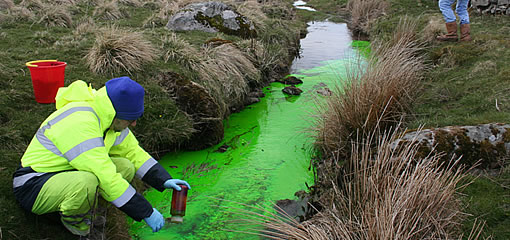Conference themes

The conference will be organised around four main themes
The conference will be the annual meeting of the International Association of Hydrogeologists Karst Commission and of the International Speleological Union Commission on Karst Hydrogeology and Speleogenesis. It is also sponsored by the Karst Commission of the International Geographical Union, the British Cave Research Association, the British Geological Survey, the Hydrogeology Group of the Geological Society of London and the International Association of Hydrogeologists GB Chapter.
The conference will take place shortly after the 80th birthday of Professor Derek Ford and will provide an opportunity to celebrate with him and recognise the huge contribution that he has made to the study of karst.
Lithological, structural and stratigraphical influences on karst groundwaters
Karst is a special environment in which the major groundwater flux is through an integrated network of disolutionally enlarged channels that discharge via discrete springs.
The channels span a very wide aperture range; the smallest are little more than micro-fractures or pathways through the rock matrix but at the other end of the spectrum (and commonly in the same rock mass) channels may grow to dimensions where they can be explored by humans and are called caves.
The relationships between matrix, channels and conduits in a carbonate rock mass are a product of recharge and rock lithology, stratigraphy and structure and exploration of these relationships is a key theme of the conference.
Modelling karst groundwater systems
Water transfer through the smaller channels that are commonly intersected by boreholes is very slow and has often been analysed using equivalent porous media models although the limitations of such models are increasingly recognised.
At the other end of the spectrum (and commonly in the same rock mass) the channels may grow to dimensions where they can be explored by humans (caves) through which water flow is analagous to ‘a surface stream with a roof’ and may be amenable to analysis by models devised for urban pipe networks.
The development of holistic and realistic models for water movement and storage in karst is a second key theme of the conference.
The ecology of karst groundwaters
The direct, and often rapid connections between surface water and groundwater in karst have given rise to distinctive groundwater ecosystems that have only relatively recently been subject to detailed study.
The field of groundwater ecology is highly inter-disciplinary involving ecology, biology, microbiology, hydrogeology and geology. Despite this hydrogeologists are often unaware of the ecology of groundwaters and ecologists often do not have access to hydrogeological knowledge and techniques.
The conference provides an opportunity to bring together hydrogeologists and ecologists interested in karst. We welcome submissions on all aspects of the ecology of karst groundwaters.
Human-karst groundwater interactions
It is well known that karst groundwater systems are of global importance to humans both as direct sources of potable water and as the source of many rivers.
Hence, a fourth theme will consider human-karst groundwater interactions, a wide area that includes water resource assessment, groundwater protection, mineral extraction and infrastructure development.